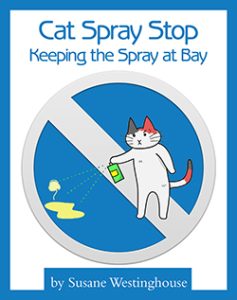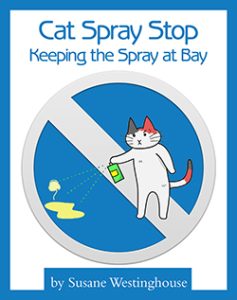
How Do You Stop a Cat from Spraying? [The Ultimate Solution]
A cat spraying around the house can leave behind more than just a strong odor—it can create stress for everyone living there. This behavior often confuses cat owners, especially when the litter box stays clean and available. Spraying isn’t a bathroom accident; it’s a way cats mark territory or express stress.
The good news is that this habit can be controlled and even stopped completely with the right approach. Understanding the reasons behind the spraying is the first step. Some cats act out because of changes in their environment, while others might be signaling a medical issue.
Whatever the cause, a clear plan can help bring peace back to your home. You don’t have to live with unwanted smells or tension between pets. This guide breaks down the causes and offers simple, effective ways to stop your cat from spraying indoors without punishment or guesswork. Let’s restore harmony, one paw at a time.
How To Stop Your Cat Peeing & Spraying?
Quick tip: An easy way to stop your cat from peeing or spraying for good is with the downloadable Cat Spray Stop eBook. Just click the image or button below to learn more!
Cats are known for being clean and independent, but spraying can turn your cozy home into a stressful space.
This behavior can confuse and frustrate cat owners. The good news is that most cats can stop spraying with the right care, routine, and attention.
What Is Cat Spraying?
Spraying is different from urinating. Cats usually spray a small amount of urine on vertical surfaces like walls, doors, or furniture. It’s a way to mark territory, not a litter box mistake.
Both male and female cats spray, but it’s more common in males – especially if they are not neutered.
Why Do Cats Spray?
Cats spray for several reasons:
-
Territory Marking: They want to let other animals know the space is theirs.
-
Stress or Anxiety: Changes at home, new pets, or moving can upset them.
-
Mating Behavior: Unneutered cats often spray to attract mates.
-
Medical Issues: Urinary tract infections or other health problems may trigger it.
Understanding the reason behind the behavior helps you choose the right solution.
How to Stop a Cat from Spraying?
1. Learn First from Expert
You can learn first it from any expert. Follow this eBook for learn easily.
2. Spay or Neuter Your Cat
Unneutered cats spray more often. Neutering reduces hormone-driven behavior. Most cats stop spraying within weeks after the procedure.
3. Clean Marked Areas Thoroughly
Cats return to spots that smell like urine. Use an enzyme-based cleaner to remove all traces. Avoid ammonia-based cleaners—they smell like urine to cats.
4. Reduce Stress at Home
Cats are sensitive to changes. Keep a stable routine, provide hiding spots, and give them safe spaces. Use calming sprays or diffusers made for cats.
5. Avoid Punishment
Never yell or punish your cat. It only adds more stress and may make things worse. Stay calm and patient.
6. Add More Litter Boxes
Use the “one per cat, plus one” rule. Make sure litter boxes stay clean and are easy to reach. Some cats avoid dirty or crowded boxes.
7. Block Outside Stress Triggers
Cats may spray if they see or smell animals outside. Close blinds, use motion-sensor lights, or block off access to windows if needed.
8. Visit the Vet
If your cat suddenly starts spraying, schedule a vet check. Rule out medical problems before assuming it’s behavioral.
Is your cat spraying stinky cat pee all over your house and things?
Final Thoughts
You don’t have to live with spraying forever. With a little effort and the right steps, you can stop the behavior and help your cat feel safe and secure.
An easy way to stop your cat from peeing or spraying for good is with the downloadable Cat Spray Stop eBook.
Pay attention to changes, offer comfort and keep your home calm. A happy cat is less likely to spray and your home will stay clean and peaceful.


